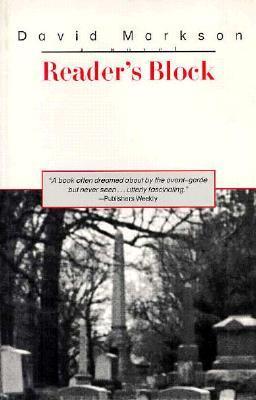What do you think?
Rate this book


193 pages, Paperback
First published January 1, 1996
A novel of intellectual reference and allusion, so to speak minus much of the novel.
…a stairway climbs to the floor above. Because of the subdivision, the entrance at the top of the stairs has been sealed. In effect, the stairs now mount to nowhere. Protagonist has set up the first of his unpacked books on some of the steps.
Nonlinear. Discontinuous. Collage-like. An assemblage.And this:
Or of no describable genre?
A seminonfictional semifiction? Cubist?
Also in part a distant cousin innumerable times removed of "A Skeleton Key to Finnegans Wake"?
Obstinately cross-referential and of cryptic interconnective syntax in any case.
And as an incidental personal challenge, letting none of its intellectual mishegaas be material Reader has ever used anywhere else.
[...] does the absence of narrative progression plus that cross-circuited schematism possibly render it even a poem of sorts?And this:
Not to add avec exactly 333 interspersed unattributed quotations awaiting annotation?
In the end one experiences only one's self.Life, that is. Or, the legacy of our culture? Both...
Said Nietzsche.
Nonlinear. Discontinuous. Collage-like. An assemblage.
Wastebasket.